Asbestos-tainted Crayons Turn Up Down Under
Government tests have found asbestos in crayons sold in Australia and New Zealand. In response, Australia’s consumer agency has asked stores to stop selling the suspect brands and some stores in New Zealand have pulled them from the shelves. Australian customs authorities have halted all imports of crayons from China, source of the tainted products, and authorities in New Zealand are considering such a ban.
Government tests have found asbestos in crayons sold in Australia and New Zealand. In response, Australia’s consumer agency has asked stores to stop selling the suspect brands and some stores in New Zealand have pulled them from the shelves. Australian customs authorities have halted all imports of crayons from China, source of the tainted products, and authorities in New ...
Government tests have found asbestos in crayons sold in Australia and New Zealand. In response, Australia’s consumer agency has asked stores to stop selling the suspect brands and some stores in New Zealand have pulled them from the shelves. Australian customs authorities have halted all imports of crayons from China, source of the tainted products, and authorities in New Zealand are considering such a ban.
On Sept. 10, the Australian Competition and Consumer Commission announced that its lab tests found deadly asbestos fibers in six brands of Chinese-made crayons, branded with images of the popular children’s characters Mickey Mouse, Dora the Explorer and Pippa Pig. On Sept. 17, the New Zealand Ministry of Health announced that it found asbestos in crayons branded with images from Disney’s “Planes” and Marvel’s “Avengers: Age of Ultron” films, as well as the Art Series brand.
The Australian and New Zealand tests were in response to EWG Action Fund’s tests earlier this year that found asbestos in four brands of crayons and two brands of crime-scene toys, also imported from China, that were being sold in U.S. stores and online.
The Australian Commission asked stores selling the contaminated products to pull them from shelves and offer refunds to customers who had already bought them. It did not order a nationwide recall and said it did not believe the crayons posed a safety risk because the asbestos fibers are embedded in the crayon wax. But a Commission official told the website news.com.au that the “presence of asbestos in crayons at any level is unacceptable because asbestos is a prohibited import.”
In New Zealand, the nation’s director of public health said retailers had been made aware of the issue, but because the risk to health is low, it was left up to them whether to stop selling them. Radio New Zealand reported that some stores voluntarily pulled the suspect brands of crayons from their shelves.
In July, after news reports of EWG Action Fund’s findings, the Australian Border Force halted all imports of crayons from China until it had assurances that they are free of asbestos. The Border Force said the same brands of crime-scene kits tested by EWG Action Fund were also being sold online in Australia, presenting a “huge” challenge to stop asbestos imports from entering the country “under the radar.”
Scientists who conducted EWG Action Fund’s tests said the asbestos found was most likely a contaminant of talc used as a binding agent in the crayons and in the powder in the crime scene fingerprint kits. Asbestos is often in mines alongside talc deposits.






